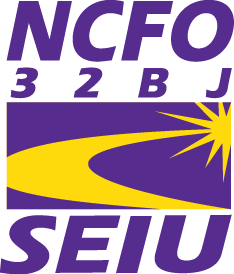
Washington, DC
The Brotherhood of Maintenance of Way Employees Division-IBT, the Brotherhood of Railroad Signalmen, the International Association of Sheet Metal, Air, Rail and Transportation Workers-Mechanical Division; and National Conference of Firemen and Oilers, 32BJ/SEIU have submitted comments to the Surface Transportation Board regarding the potential sale of Kansas City Southern Railway (KCS). Together, the four unions will be collectively referred to as the Allied Rail Unions (ARU). Those comments are summarized below.
The concern of the ARU is the non-productive, and potentially destructive, competition between Canadian National (“CN”) and Canadian Pacific (“CP”). After CP offered a premium to KCS shareholders for its proposed acquisition, CN upped the ante by 21 percent; it bid $5 billion over what CP was offering. Now CN has increased its offer by another $770 million. According to the Surface Transportation Board “CN intends to raise ‘approximately $19.3 billion of new debt’ to finance its proposed merger with KCS”; and CN’s most recent offer “represent[s] ‘an implied premium of 45% when compared to KCS’ unaffected closing stock price on March 19, 2021.” In response, CP may increase its offer. As CN and CP compete for KCS they may negate any potential transportation benefits of a consolidation with KCS, and there is a likelihood that innocent bystanders–– employees of CP, CN and KCS, and shippers which use those carriers—will pay a price for this exercise in one-upmanship.
A bidding war has consequences. By overpaying to keep the target out of the hands of its rival, the successful bidder would have less capital to invest in the ultimate railroad; every dollar spent wooing shareholders of the target is a dollar not invested in the railroad. The successful bidder, having spent more than what was anticipated would likely seek to recoup its excess expenditures by seeking so-called cost-cutting “efficiencies” from rail workers; and it would likely seek to reduce other costs, which, in turn, would diminish service.
When CSX tried to acquire control of Conrail, offering a premium to Conrail shareholders, NS offered to top CSX’s bid, which led to CSX upping its offer, then STB Chair Linda Morgan brokered a resolution– a division of Conrail between CSX and NS. But some damage was done as a result of inflated payments to Conrail shareholders CSXT and NSR sought to reduce labor costs by implementing so-called efficiencies. However, unlike Conrail, there does not appear to be a reasonable way to divide KCS.
The Board should recognize it has a role to play to ensure that any acquisition of KCS is in the public interest. Under the Interstate Commerce Act, when presented with the merger or control of two Class I carriers, the Board “shall consider” the effect of the transaction on adequacy of transportation to the public”, “the total fixed charges that result from the transaction”, “the interest of carrier employees affected”, and whether the proposed transaction would have an adverse effect on competition. Ultimate approval of a transaction is dependent on a determination that the transaction is “consistent with the public interest”. The ARU contend that the successful bidder overpaying for KCS, depleting resources and taking on debt, and chasing “efficiencies” in order to recoup the overpayment are bad for rail transportation.
KCS’s current shareholders seek the highest price for their shares; the long-term health and vitality of the ultimate railroad is not their foremost concern. But they do not decide whether an acquisition is in the public interest; the Board must make that determination. The shareholders should be cautioned that, their efforts to maximize the bids for their shares may lead the Board to find that the bidding war has undermined the potential value of the transaction.
The Board should make it clear that its assessment of whether a proposed acquisition of KCS is in the public interest will turn in part on evaluation of the purchase price and any premium paid. The Board should also make it clear that just because the applicants have invested time and money in bringing forward an application, financial markets like the transaction, and they have lined-up supporters, that will not be sufficient to gain approval of the transaction. And the Board should declare that it will not approve plans for cost-cutting and so-called “rationalizations” that appear to be driven by a desire to recoup overpayment for control of KCS, and it will not approve a bid when the transportation value of the proposed transaction has been diminished by overpayment that has resulted from corporate one-upmanship to obtain advantage in a rivalry.
The NCFO is an affiliate of 32BJ SEIU, the Service Employees International Union, which has 2.1 million members dedicated to raising industry standards, making life better for working families and our communities, and building a fair economy.
XXXXXXXXXXXXXXXXXXXXXXXXXXXXXXXXXXXXXXXXXXXXXXXXXXXXXXXXXXXXXXXXX

